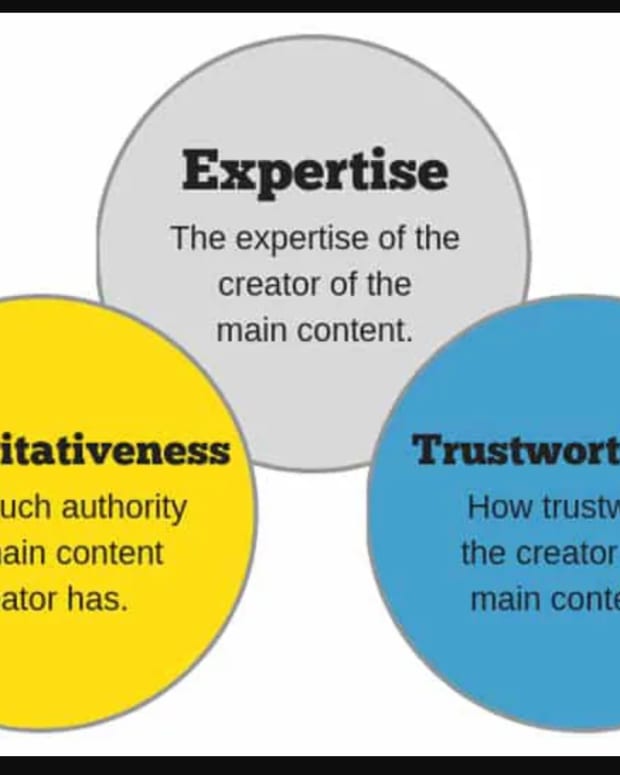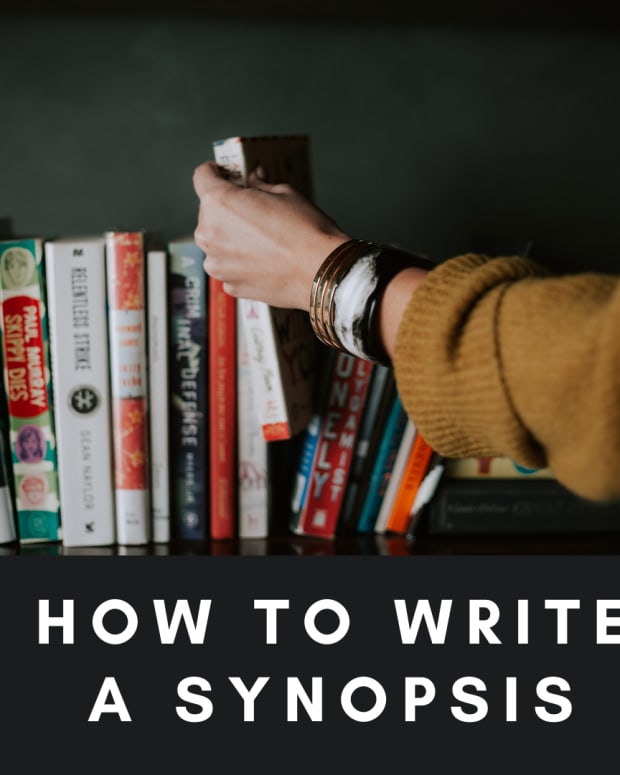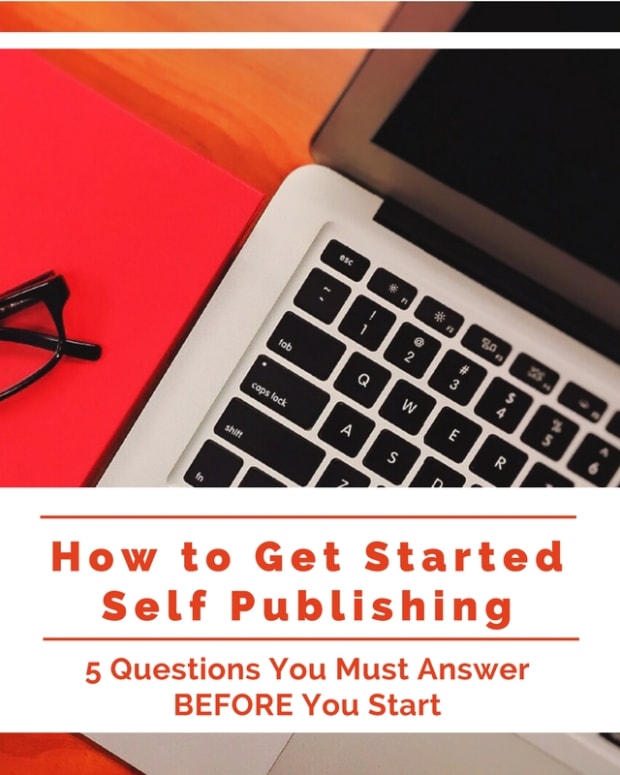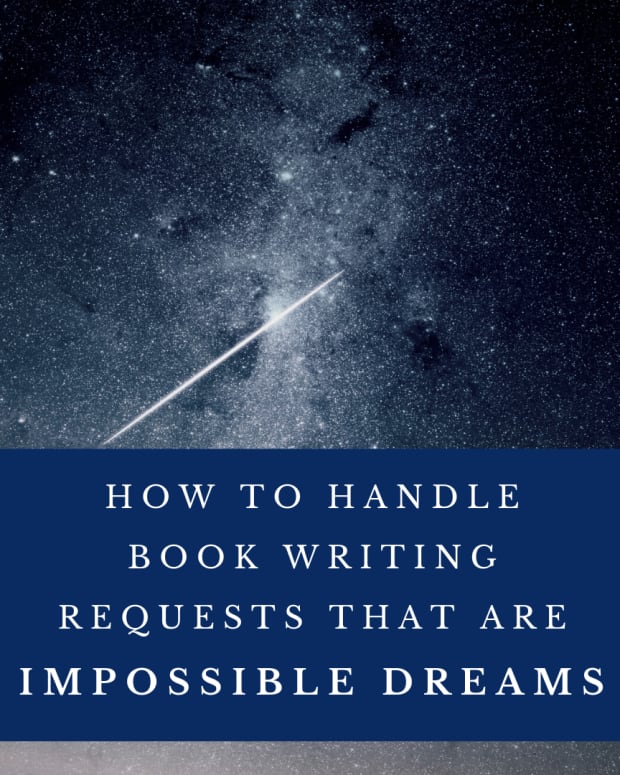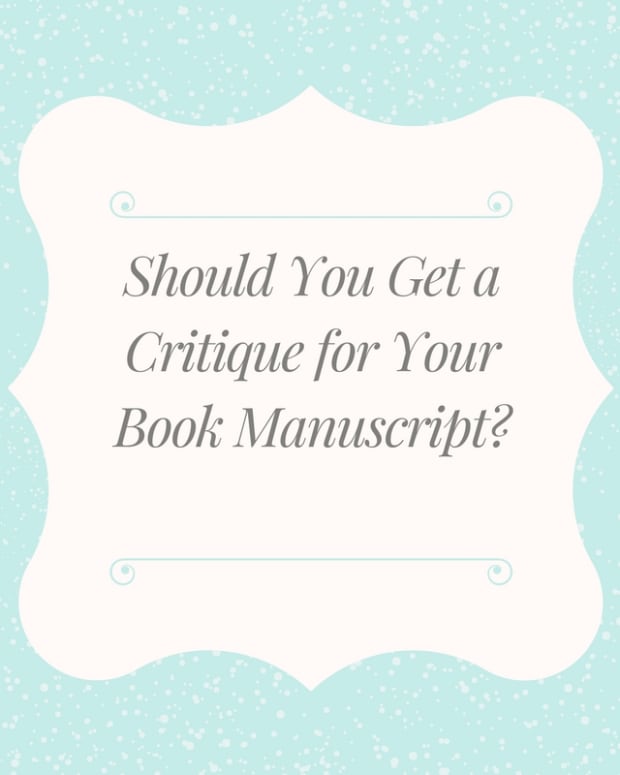How to Get Started With Writing an E-Book
PS has worked as a freelance writer since 2012. When she's not traveling and writing, she helps people with web design and development.
In this article, we are going to discuss:
- How to understand your readers
- How to draw up a plan for your e-book
- How to stay motivated to write
- How to overcome writing obstacles.
Writing an e-book might be the most daunting task of your writing career. As a fresh face, you might be concerned if you can finish it or not. This is nothing new because, at some point, all writers go through this feeling. It is normal to worry, feel a little less confident, and think at a length about where to start and how to carry the plot forward. This is positive stress that helps you to maintain curiosity during your working periods.
Writing a book is a journey worth taking. Imagine your finished e-book being displayed on major sites like Amazon, Barnes & Noble, and endowed with readers’ reviews. A perfect moment for you to shine as an accomplished author. You are not just a writer, you are a published author now and your bank account is filling up with large payments. Considering this possibility, let’s learn how to make this a reality.
The following tips apply to you despite what sort of book you are writing, whether it’s fiction, non-fiction, short story, or anything else.
Researching the Needs of Your Audience
Your e-book is a collaborative production of your own interests and the needs identified by your audience. It’s not enough to recognize your own expertise in a field, you need to push your limits and find out your audiences’ requirements as well. You can do this by researching the trending e-books in your chosen field and asking for help from your existing audience.
1. Researching Books in Your Chosen Field
- Check out the bestselling e-books on Amazon.
- Find out the common traits among them.
- Download samples to figure out their content and styling.
- Search relevant blogs that promote or sell e-books similar to your interest.
- Read customer testimonials or reviews to note down their likes and dislikes.
- Look at readers’ demographics such as gender, age, and location.
- Make a list of these popular e-books (ten e-books will be fine to get a close estimate).
- Copy their descriptions, author biographies, and other relevant information that’s valuable for you.
- Check out the median length of the e-books, also include the shortest and longest lengths.
- Study the common features and writing style of each e-book; it can be formal, conversational, or some other style.
- Figure out the methods used by these e-books to target their potential audience. Is there any type of writing method to target the particular age group, gender, social status, education level, and so on?
- Read the topics and themes that are used repeatedly to maintain the readers’ attention.
Note:
- Never ever try to imitate the work of popular e-books, as opposed to just finding out about them. It restricts the growth of your writing talent. You may also become a subject of criticism by the readers and may end up receiving poor ratings.
- Avoid cliché and not-so-useful details.
- If any topic is overused, then avoid using it in your e-book. Try to push your limits to bring a new idea out of it.
2. Asking for Help From Your Online Audience
It’s not about the quantity but the quality of your online audience that can help you sell a bestselling e-book. You can gather your audience through blogs, social media accounts, or email lists.
The best way is to conduct a survey. It must be short and to the point. It works better for non-fiction genres, but you can also ask about their fantasies and interests that relate to your fiction work. Here are some sample questions to ask them:
- What’s your favorite book of all time in fiction or non-fiction?
- What other books have you read about a particular topic?
- What are your main problems related to work-life balance, personal life, or something else?
- What’s your biggest dissatisfaction with the writing style?
- What types of chapters are useful for you? Select among the following.
- What other features would you find helpful? Select among the following.
如果一项调查变得太冗长的或正式的,你can decide to write a blog, send an email, post a tweet, do a Facebook update, or publish an Instagram story. Remember, your audience is your best bet. So, take their help as much as you can.
You can also share some parts of your e-book to gain their opinion. They may be able to tell you if it gives a clear description or raises confusion.
Planning the Plot for Your E-book
Consider yourself at the beginning of a journey. You have to decide in advance about the places you want to visit. You note down their names and other relevant details, also mentioning the possible problems. You, then, begin your journey, take the help of your notes and fill in the moments. You, possibly, may not stick to it completely to enjoy the side-views, which is completely al lright. But in any way possible, you finally arrive at your destination. That’s how you need to plan your e-book writing process as well.
Drawing a Mind-Map for Your E-Book
Drawing a mind-map is a perfect visualized way to ease your writing process. In this, you write the name of your e-book in the center and link it with the relevant ideas. You can also make use of different softwares online. Just run a simple search, “Mind Mapping software online”. Here are a few steps to draw a perfect mind map:
- Write the title on the page center.
- Write the ideas relevant to the topic.
- Consider all ideas right now, whether logical or illogical. You can modify them later.
- Interlink the ideas with the related ones.
- 完成它在multiple sessions to always come up with some fresh new suggestions.
Mind mapping helps you bind all the existing ideas and also encourages you to come up with something new. So, you can count it as an important addition to your planning process.
In fiction writing, you may need several mind maps such as characters, plot twists, side-stories, and so on.
Making Use of Outliners
Fiction writers, in particular, find cork boards and index cards to be very useful in building the story plot. Many of them also make use of different software such as Scrivener, Bibisco, Manuskript, yWriter, and so on.
This method helps you experiment with different scenarios and decide the final flow of your story. This is also applicable to short story writing.
You can also try it out for non-fiction work, especially when you are writing stand-alone chapters. Some examples are the compilation of essays, blog posts, memoirs, and so on.
Writing the Chapter Outline
Write the chapter briefs; these can be a list of titles as well. Include headings, sub-headings, and some little details.
In case you already tried it and abandoned the idea, then try writing a detailed plan. Don’t think much over what comes in your mind, just keep writing.
While writing fiction, many authors write only the first few chapters with appealing conflict and drama and leave the rest for later. They decide the later chapters when the story makes progress.
Your plan is always going to be tentative; you should revise it multiple times as you proceed further with your e-book.
Maintaining Consistent Motivation for Writing
Is your urge to be a published author just a temporary whim or an endless ambition to? There are thousands to millions of e-books published every year and the same number of unpublished e-books that are left unfinished on the shelf. What about your e-book? It is pretty normal for you or anyone else to feel a little less motivated at times, but real success demands for constant motivation. Irrespective of how you feel, you must devote yourself to your work. Don’t let your emotions restrain you. Whenever you fall into this situation, recall why you actually started this in the first place. Your reason to begin an e-book can be any of the following:
- Earn extra income or build a constant stream of passive income.
- 促进产品和服务
- Establish your authority in the field
- Interact and gather a large audience
- Drive to prove yourself as an accomplished author
- Improve your writing resume to receive a better job or contact publishers and agents to represent you
- Gain a reputation as a published author
You can be motivated by more than one goal. Maintain your focus on writing and what you want will come by itself. In case your writing meter slows down, slap your face hard, and recall your goals.
You can also hang a note near your desk or anywhere in your room, where it is easily noticeable. Write ‘I am writing the e-book because I want to…’, add as many purposes as you can.
Setting Strict Daily Time Limits to Focus on Your E-Book
You can have more reasons than your goals to not write an e-book. Writing can be a reluctant activity many times. The common excuse people give is they don’t have sufficient time to write.
One who desperately wants to earn the tag of successful writers internally forces themselves to keep on working. Despite other chores, they can make enough time for their writing. So should you. Consider this not just an e-book, but a major project that comes with several rewards. Undoubtedly, successful writers are among the most celebrated people.
Reserve a specific time and day in your diary. Don’t just promise yourself orally, it’s better to write it down and keep it on your desk. Easy task, but it does require effort to follow. Remember, you are a writer, you should do it.
Choosing the Perfect Writing Environment
Here are some suggestions from published authors on how to set the mood for writing:
- Take charge of your time and decide and when and where to write.
- Writing at home in front of the television or with family seated nearby isn’t a very productive idea.
- Many writers prefer to work in silence, but others feel inspired while working in a cafeteria.
- When working at home, it’s very important to set up your own writing space (also recommended for freelancers).
- Working in a public library is also a good idea. In fact, many freelancers and writers decide to find a place different from their home because a home is a place for comfort and relaxation, building a professional environment especially when you have a family is a tough task.
- Also, focus on what time of the day you feel most active. Many people can concentrate best at night, so it’s quite normal for them to wake all night and sleep in the morning.
Every person is different. While waking up early in the morning is counted as a healthy lifestyle, many writers prefer to alter their schedule while working on big projects. Your e-book is nothing less than a big and serious project.
Writers are also prone to procrastination, for some, it’s a serious problem. But it doesn’t mean they lack the ability to become a great writer. Giving a little time to figure out the distractions and eliminating them can help you achieve your goals in no time.
你需要注入你的习惯写在勒ast for an hour or two. Everyone preaches self-discipline, but it all starts with changing your habits. If you spend around 30 minutes surfing the Internet, then try to devote that 30 minutes in writing your e-book. The best is to turn off your Internet while you are writing. It, eventually, cultivates in your habit to give a certain amount of time to your writing. Thus, it becomes much easier to write and develop your confidence.
Dealing with Common Problems You Face While Writing E-Books
Any lengthy and complex project such as an e-book is certain to be surrounded by unavoidable problems. The problems can be related to personal circumstances, less or extra content in your e-book, probability of failure, and so on. Here are the common problems with relevant solutions:
1. You are confused because your mind is clouded with several ideas and you don’t know which one to pick up first.
- It’s actually great you have several ideas to work upon.
- The best thing to do is to write down these ideas on different pages.
- Try to elaborate on each of them and figure out which one is more likely to finish early, has a strong potential market, and can help you gain early success as well as better income.
2. You expected to end up with a 30,000-word e-book, but it’s no more than 12,000 words.
- You must be capable of conveying your message concisely. This is a great skill to have, but it can limit your readers’ capacity to understand your e-book.
- There’s a possibility that your readers may want you to elaborate on certain topics, which you thought to be trivial or self-explanatory.
- The best way is to take the help of your trustworthy audience, family, or friends.
- You can show them a few pages of your e-book and ask their reviews if it needs to be detailed or not.
- You can also publish it as a short e-book, which is also commendable, if needed you can write its second edition later.
3. You are just half done with your e-book and the word limit is already reached.
- It is possible to end up with more than expected words even if you follow all the rules.
- This is indeed an opportunity for you to revise your work and produce another part for it.
- You may also need to check if you have overused some words or overwritten some paragraphs.
- You, possibly, have given lots of information about side topics or repeated yourself using different terms.
4. You are no longer interested in your selected topic.
- 积极致力于几章之后,如果writing any further detail feels like torture to you, then you are not alone.
- You are overwhelmed with working on the same topic and it doesn’t even look promising to you anymore.
- You wonder why in the world you even picked that topic in the first place.
- Maybe, it was for financial gain, if so then you need to conclude if the money you expect is worth your effort to continue writing.
- You also have the option to finish the e-book according to what you have already written and rather publish it as a shorter e-book.
- You can also post it in the form of blog posts, instead.
5. You want to write about a certain topic, but you don’t have much information available.
- Consider an example, you are writing a book about ‘how to keep your mind focused’.
- Now, you want to write about the internal functioning of the brain that changes when a person puts a firm concentration on his goals.
- But you are not quite sure about which body chemicals and nerve signals to write about.
- The best way is to research the subject using relevant articles, books, and journals. Make sure these are written by experts in the field.
- You can also contact an expert to add a short passage to your e-book. In return, they can ask you for acknowledgment or mention of their services and/or products.
6. You have other commitments that have gained priority in your life now.
- You have other work commitments that are approaching deadlines or one of your family members has fallen ill. Whatever the situation, the result is the same. You are, now left with little to no time to write your e-book.
- If your problem is temporary, you can put your e-book on hold for a while. Just note down a few points on where to start and what are your next plans.
- In case your commitment is long-term, you may need to revise your work and either produce it as a short e-book or get help from a freelance writer or a co-author to complete it to the end.
- If you want to finish the e-book at all costs possible, then try to alter the duration and timing of your writing. You can start early in the morning when your concentration is at its peak. You can scribble some notes while working or traveling and then, expand the idea later at night or in the morning.
7. You don’t have supportive family and friends.
- If your family and friends don’t take your work seriously, then it is highly discouraging.
- You should try to explain your motives to them if they can identify themselves with it, they’ll be more supportive.
- Another way to maintain the writing mood is to seek support elsewhere, you can connect with local writers or join online forums to talk to writing enthusiasts.
Even if you feel the need to alter your e-book writing plans, you should never desert your ambitions. Stay focused, write your e-book, and publish it. Your first e-book is your first step to becoming a popular author. So, keep working.
Comments
dashingscorpiofrom Chicago on June 18, 2020:
经常阻碍作家的另一件事,是我rrying about things they don't need to worry about. For example creating files for the eBook format and coming up with a great book cover.
These are items which can be outsourced to freelancers on sites such as Fiverr.com and Upwork.com
As for publishing KDP publishing and Ingram Spark are probably the best to deal with for eBook and paperback self-publishing.
Last but least the number one goal is to {sell your book}.
As challenging as it is to write a good book that's the EASY part!
Finding and developing a marketing strategy that works for (you) is the key difference between having a best seller and a vanity project. Unlike writing your book, marketing never ends!
Priya Baruaon June 10, 2020:
It would be amazing to get feedback from an online audience but perhaps, it is much harder to build one. Many of us aren't able to post blogs regularly to create a consistent audience and hence we lose out before we even begin plotting our novel.









